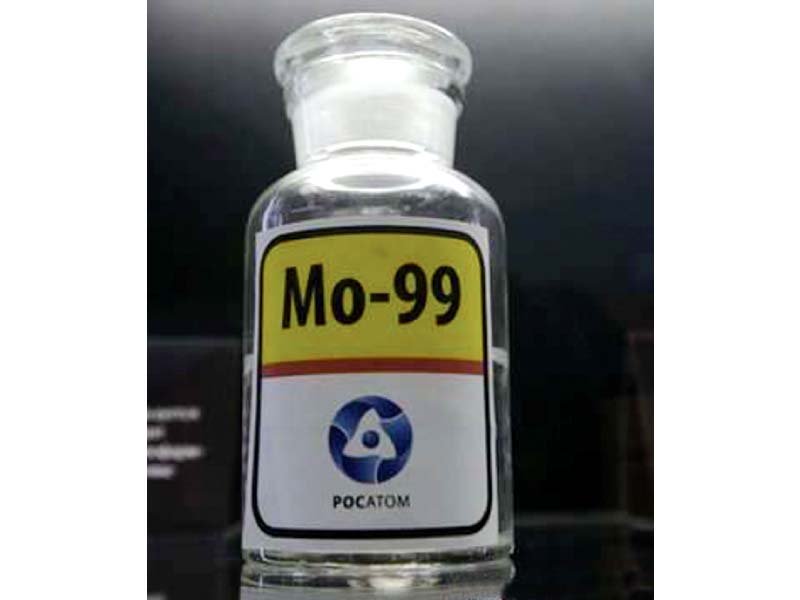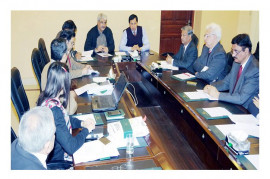
ISLAMABAD:
The Supreme Court has sought reply from chairman of the Pakistan Atomic Energy Commission (PAEC) over a petition dealing with contaminated injections used for diagnosing cancer.
The three-judge bench, comprising acting Chief Justice Mian Saqib Nisar, Justice Iqbal Hameedur Rahman and Justice Tariq Parvez, on Tuesday took up the case instituted by Muhammad Riaz Pasha — a scientist serving as an adviser in the Pakistan Atomic Energy Commission (PAEC).
During the brief hearing, the bench sought reply from PAEC chairperson and the federal government. The hearing was adjourned for an indefinite period.
The petitioner urged the court to take notice of the issue of supply of contaminated diagnostic injections, containing unsuitable radionuclide, which can even cause cancer through prolonged exposure.
Radionuclides, or radio isotopes, are inherently unstable particles that contain excess nuclear energy and those with suitably short half-lives are used in medicine for diagnostic purposes.
“It is like fitting an atomic bomb into the human body, resulting in the failure of organs as well as the entire nervous and immune systems… that too at a stage where it was yet to be diagnosed whether the patient was suffering from cancer or not,” the petition maintains. “Each year, thousands of patients are admitted to the 14 hospitals where these injections were administered,” it claims.
The petitioner has made the federal government through the health secretary, PAEC chairperson, PAEC director-general (technical) and the Pakistan Institute of Nuclear Science and Technology (Pinstech) director-general as respondents.
Pasha agrees that this is the same case that was taken up suo motu, and disposed of on April 3, 2014, when a report submitted by Pinstech denied the allegations.
In its findings, Pinstech had stated that an inquiry committee had studied the procedures in depth and visited the production facilities and testing laboratories, interviewed scientists and technicians as well as examined the record of inspection, acceptance and rejection of the radionuclide.
The inquiry committee thoroughly checked the quality control and assurance record of all the batches of molybdenum-99 produced at Pinstech and found it to be in order, the report had assured the court.
It also claimed that the Pakistan Nuclear Regulatory Authority (PNRA), being an independent regulator and licensor, also conducts random testing.
Molybdenum-99 is the parent radioisotope — obtained from uranium-235 — and is used to produce the daughter isotope technetium-99m, which is used in many medical procedures.
Pasha, however, said that the situation had not improved, adding that the officer he had been advising and who had moved the earlier case was forced to withdraw due to tremendous pressure.
In the latest petition, Pasha says he had been involved with the quality control of the manufacturing and production of molybdenum-99 through technetium-99m generators by Pinstech, and had found contaminations that could lead to cancer at the level of diagnosis.
The case was closed by the Supreme Court, he explained, on the basis of the Pinstech reports without any third-party analysis of the quality, capacity, manufacturing, producing, standards verification and investigations to ensure safety.
He claimed that complete picture was not produced before the apex court, when it was hearing the suo motu case, adding that the manufacturing of injections continues at the same pace and had probably affected thousands of lives.
A third-party report, carried out by Moody International Certification Group, carried out on February 12, 2013, said that the molybdenum-99 in the injections was found to be much higher than specified values and that they were delivered to different hospitals.
Published in The Express Tribune, February 3rd, 2016.












































COMMENTS
Comments are moderated and generally will be posted if they are on-topic and not abusive.
For more information, please see our Comments FAQ